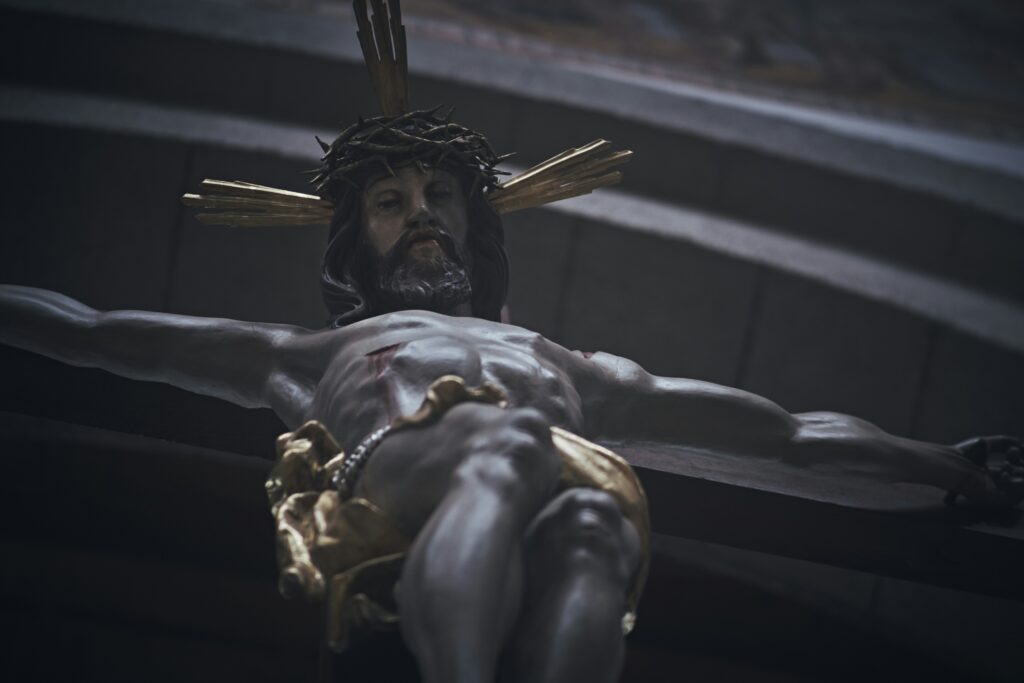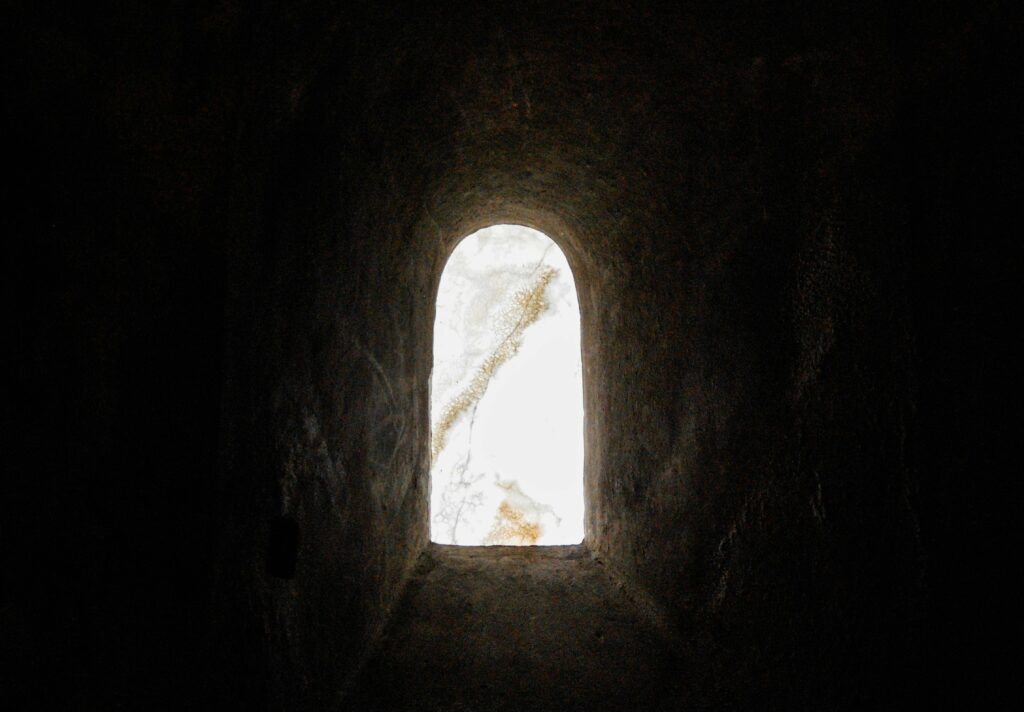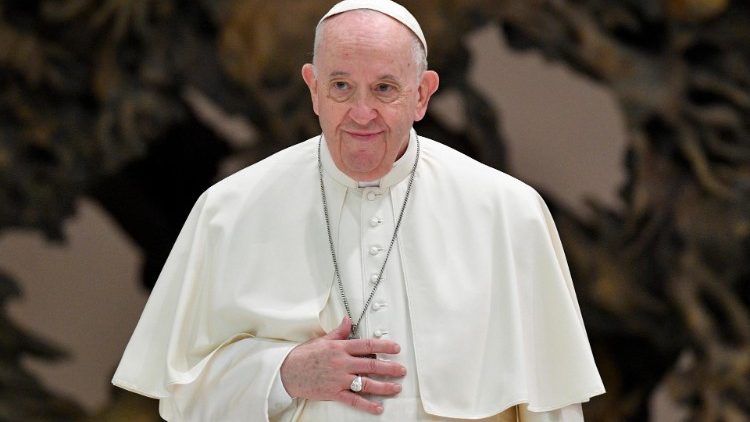Words That Illuminate Our Crosses
Jesus's last words as a beacon of meaning and hope in the midst of human suffering

With his actions and words, Jesus reveals to us a logic, a criterion, an axiology distinct from the logic of our society. The Gospel of Jesus contains a logic contrary to that of this changing era and to this “culture of death,” governed, characterized, and conditioned by the “light” tendencies of postmodernism.
Thus, while the world in which we live invites us, by every means and in a thousand ways, to attachment, ambition, and greed for material goods, to fear, hatred, violence, resentment, flattery, lies, hypocrisy, servility, individualism, consumerism, hedonism, intolerance and discrimination, injustice and marginalization, corruption, the crushing ambition for power, appearances, externality, noise, ostentation, arrogance, etc., Jesus of Nazareth lives, designs, and teaches us a new way of life and of being human. He himself is the model of man that God has for every human being.
Logic, lifestyle, and way of being human, according to the will of God the Creator and Father, which is synthesized in the events that we liturgically commemorate in the Easter Triduum of Holy Week or Holy Week for Catholics, and especially condensed in two traditions of the Christian people for Good Friday: the “Way of the Cross” and “The Seven Words.”
I will refer to these two devotions very succinctly in the following lines. I am certain that the message they contain, like the entire Gospel—which is Jesus himself—has everything to say to every man and woman, to all of humanity, regardless of creed, culture, or place of origin.
That is to say, like all of Jesus’ deeds and words, the passion and death of Jesus, which we contemplate on Good Friday, have a message of universal reach. Because in Jesus the mystery of the life of every human being is clarified (cf. DV 2), since He took upon Himself all our joys and sufferings, all our triumphs and failures, all our greatest desires for happiness and a better world, our yearning for truth, justice, freedom, and peace.
Thus, on His way to the Cross or Via Crucis, Jesus was—unjustly—condemned to death, stripped of His garments, and nailed to the cross (Stations 1, 10, and 11). Today, in the same way, millions of innocent people are condemned to death, stripped, stripped, and nailed to the cross in many ways, in whom Jesus’s death sentence is perpetuated and made present. Millions are persecuted, exiled, isolated, tortured, and disappeared, crying out for justice that is neither manipulated nor corrupted, for dignity and rights. They cry out against unjust and inequitable political or economic systems and against those who justify their harassment of the weakest as a means of protecting society, when in reality it is a defense of their privileges.
Like Jesus of Nazareth, today there are millions of human beings—in every corner of the earth—who CARRY CROSSES (Station 2), cruel and heavy burdens imposed by others, the product of unfraternal relationships and unjust and dehumanizing social conditions, in which—fratricidally—some crush others.
JESUS FALLS, once, twice, and three times (Stations 3, 7, and 9): like millions of men and women fallen and defeated by the weight of injustice. It is the story of the falls of millions of victims and oppressed that is not recorded in the history written by the victors. But Jesus gets up and continues.
JESUS MEETS MARY, HIS MOTHER, AND THE WOMEN OF JERUSALEM (Stations 4 and 8). God’s logic, sung by Mary in the “Magnificat,” according to which the God of Jesus fills the hungry with abundance while sending the satiated away empty, comforts all those who—like Jesus and with Him—suffer and cry out for hope.
SIMON OF CYRENE HELPS CARRY THE CROSS AND VERONICA WIPES JESUS’S FACE (Stations 5 and 6). It is the impoverished, the least, and the “discarded” of the world who judge our consciences. I was hungry, thirsty, alone, sick, imprisoned, naked, neglected, homeless, without opportunities: Did you help me? There is evil and pain, but there are also Cyrenians and Veronicas who humble themselves to look, to meet, to serve, to give of themselves, and to lighten the burden of so many brothers and sisters in need.
JESUS DIES ON THE CROSS (Station 12). The struggle for truth, freedom, peace, and justice has few successes. Millions of condemned, dispossessed, crucified, and dead people never see the triumph of the causes for which they dedicated themselves.
JESUS IS TAKEN DOWN FROM THE CROSS AND LAID IN THE TOMB (Stations 13 and 14). In the just dead Jesus are all the dead of the earth. There are men and women who struggle to take themselves down from the cross and take others down from the cross. Because the most deeply human longings and the best ideals for a better world are not buried with corpses. Those who die unjustly and those who die for truth and justice become grains of wheat that, if they die and are buried, bear much fruit.
Whenever truth and justice triumph in the world, whenever we build brotherhood and abundant life for all, whenever we are capable of love and forgiveness, whenever we are capable of compassion and service, hope, new life, transformation, and the RESURRECTION OF JESUS CHRIST are born (Station 15).
Silence is death, and the word—as in biblical creation—is life. With his death on the cross, the Word, who is Jesus himself, was not silenced, and in his SEVEN LAST WORDS ON THE CROSS, Jesus gives life and invites us to forgiveness. Because without forgiveness, we cannot endure—like Jesus—the sufferings of life, and Jesus’ forgiveness saves all those crucified with him and all the evildoers of history. “FORGIVE THEM, FOR THEY KNOW NOT WHAT THEY DO” (Luke 23:34).
He invites us to be happy, to the paradise we all long for, which is only built in fraternal solidarity, through love. “TODAY YOU WILL BE WITH ME IN PARADISE” (Luke 23:43).
To build the world as one great family, one great table, where everyone fits and everyone eats: the family of the children of God. “WOMAN, BEHOLD YOUR SON, BEHOLD YOUR MOTHER” (Jn 19:26-27)
To trust that – despite our hardships – God is present. “MY GOD, MY GOD, WHY HAVE YOU FORSAKEN ME?” (Mk 15:34)
To experience that God thirsts for our love for others, thirsts for us to do his will, and to experience, at the same time, our thirst for fulfillment, our thirst for God. “I THIRSTY” (Jn 19:28)
When we begin to love, to forgive, to serve, we begin to be perfect as God is perfect, as God is good, compassionate, and merciful. And then, with Jesus, we can say: “IT IS FINISHED” (Jn 19:30)
Fears paralyze us. Living in fear is not living. Waiting and resting in God, in God alone—as God himself did on the seventh day of Genesis—is the culmination of creation, of our existence, and of our history. “FATHER, INTO YOUR HANDS I COMMIT MY SPIRIT” (Luke 23:46)
Related

Easter for a Life of Hope
Mario J. Paredes
21 April, 2025
4 min

Munilla: ‘Chronic Adolescence’ or ‘Maturity in Christ’
Exaudi Staff
21 April, 2025
3 min

More than a Decade of Service, Reform, and Hope
Exaudi Staff
21 April, 2025
4 min

The Pontificate of Pope Francis: A Leadership of Compassion and Renewal for the Church
Exaudi Staff
21 April, 2025
3 min
 (EN)
(EN)
 (ES)
(ES)
 (IT)
(IT)

